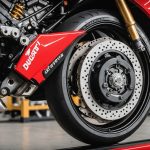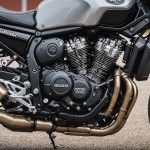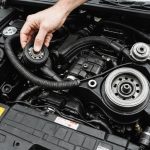Understanding Hybrid SUV Fuel Efficiency
When it comes to hybrid SUVs, understanding their fuel efficiency is crucial to appreciating their value. The key advantage of hybrid technology lies in its ability to improve fuel efficiency. This is achieved through the integration of a gasoline engine with an electric motor, allowing these vehicles to operate using less fuel compared to traditional SUVs. The result is a vehicle that not only offers the performance expected from an SUV but also reduces fuel expenditure.
In the context of British vehicles, several factors influence the fuel efficiency of hybrid SUVs. Driving conditions, such as frequent stops in urban areas, leverage the electric motor more effectively, further enhancing fuel savings. The climate also plays a role; milder British weather can aid battery performance, contrary to extreme temperatures where efficiency might decrease.
Also to see : Essential Guide to Effectively Maintaining the Cooling System of High-Performance British Cars
When comparing hybrid SUVs to their traditional counterparts, the difference in fuel consumption is noteworthy. Hybrid SUVs generally exhibit lower fuel consumption due to their part-time electric input, leading to reduced carbon emissions and fuel costs. For instance, a hybrid SUV might consume approximately 30% less fuel than a comparable gasoline-only model under similar conditions. This makes them a compelling option for those seeking an environmentally friendly yet powerful vehicle.
Driving Habits That Maximize Mileage
Daily driving decisions play a significant role in fuel efficiency. Smooth acceleration and braking are foundational for enhancing eco-friendly driving. Rapid starts and hard stops use more fuel, so approaching red lights gradually and accelerating steadily can help.
Also to read : Transform Your British Luxury Car: The Ultimate Guide to Retrofitting a Heated Steering Wheel
Maintaining an optimal speed is equally crucial. Each vehicle has a speed range where it consumes the least fuel. This usually means driving at moderate speeds—avoiding both high speeds and snail-paced traffic whenever feasible. By keeping your speed consistent, you make your engine work less and maximise fuel conservation.
The magic of cruise control on highways cannot be overemphasised. This feature helps maintain a constant speed, reducing the need for unnecessary acceleration and ensuring steady gas consumption. This stabilisation minimises fuel-wasting fluctuations and proves especially helpful during long trips.
Adopting these mileage tips can significantly improve fuel economy, not just saving money but also lowering emissions, benefiting the environment. It’s all about smart choices and a little forethought, making a positive impact with minimal disruptions to your driving experience. Remember, driving more economically often means driving more safely as well.
Maintenance Strategies for Enhanced Performance
Keeping your hybrid SUV in excellent condition involves consistent vehicle maintenance and understanding how each aspect contributes to overall efficiency. Regular service checks are pivotal. They ensure that crucial components are functioning optimally, enhancing the vehicle’s longevity and performance. Such checks detect issues early, preventing small problems from becoming costly repairs.
An often-overlooked aspect of hybrid SUV care is tire pressure and alignment. Proper tire pressure significantly impacts fuel consumption, as under-inflated tires increase rolling resistance, leading to higher energy use. Aligning tires correctly ensures even wear and maximizes the vehicle’s handling capabilities. Simple checks on tire conditions can lead to noticeable improvements in efficiency.
Selecting high-quality motor oils and filters is another cornerstone of effective maintenance. These products play a key role in reducing engine friction and maintaining cleanliness, which are crucial for sustaining the hybrid system’s optimal performance. Investing in superior motor oils not only protects the engine but also enhances the overall driving experience.
By adhering to these performance tips, hybrid SUV owners can ensure their vehicles run smoothly and efficiently. Maintaining optimal conditions through diligent vehicle maintenance fosters both short-term efficiency and long-term reliability. It’s a proactive approach that pays off significantly over time.
Utilizing Technology for Better Fuel Economy
Modern vehicles are increasingly equipped with built-in technology that enhances fuel economy. These innovations help drivers maximise efficiency while on the road. Hybrid technology is a key component, allowing vehicles to switch seamlessly between petrol and electric power, significantly reducing fuel consumption.
Beyond the hardware, vehicle apps play a pivotal role in fuel management. These apps include tools for monitoring fuel efficiency, providing real-time data and insights that help drivers adjust their driving habits. For instance, some apps analyse speed, acceleration, and braking patterns to offer suggestions for more efficient driving.
Navigation systems are another vital component in improving fuel economy. By calculating the most efficient routes, considering traffic patterns and road conditions, these systems minimise unnecessary fuel consumption. Efficient route planning can lead to significant savings over time, especially for regular commuters.
To wrap up the technological toolkit, many cars come with built-in fuel economy tools, such as onboard computers that track and display real-time fuel consumption rates. When used in conjunction with vehicle apps and navigation systems, these tools provide a comprehensive strategy for maintaining a cost-effective and sustainable driving experience. By leveraging this technology, drivers can effectively reduce their carbon footprint while saving on fuel costs.
Eco-friendly Modifications for Hybrid SUVs
Exploring eco-friendly mods is an exciting opportunity for those who own hybrid SUVs. These modifications can significantly improve fuel efficiency, making your vehicle more sustainable. Simple yet effective fuel-saving tips include installing low-resistance tires and aerodynamic enhancements such as wheel covers and spoilers. These options reduce drag and boost performance without compromising comfort.
Another aspect to consider is the installation of energy-efficient LED lights and solar panels, which help conserve battery power for hybrid vehicles. These modifications contribute to the overall eco-friendly profile of your SUV, ensuring that you save on fuel while reducing your carbon footprint.
When pondering the financial feasibility of these enhancements, it’s important to weigh the initial costs against future savings. For instance, while aerodynamic mods can initially seem pricey, they often result in long-term fuel expenditure reductions. This financial approach helps clarify whether the modifications genuinely deliver value over time.
Taking inspirations from case studies in British hybrid SUVs, a variety of owners have reported positive outcomes. These include enhanced efficiency thanks to hybrid enhancements such as engine tuning and energy recovery systems. The evidence of these successful adaptations encourages more hybrid SUV owners to engage in such modifications, connecting them to both ecological benefits and financial advantages.
Comparing Hybrid SUV Models for Efficiency
When exploring hybrid SUV comparisons, it’s essential to consider a variety of factors like fuel efficiency ratings and features specific to British models. The UK’s market boasts several noteworthy hybrid SUVs renowned for their eco-friendly performance and compelling features contributing to superior mileage.
British models such as the Range Rover Evoque and the MG HS PHEV offer impressive fuel efficiency ratings, making them popular choices among eco-conscious consumers. These vehicles integrate advanced technologies like regenerative braking and eco-driving modes that enhance their efficiency.
For instance, user reviews praise the MG HS PHEV for its real-world fuel consumption of about 40-45 miles per gallon, highlighting the practical benefits of its hybrid system in diverse driving conditions. Similarly, the Evoque demonstrates exceptional efficiency with its use of a mild-hybrid system that optimizes fuel consumption during urban drives.
To better understand what these ratings mean for everyday use, real-world tests often provide clearer insights than manufacturer figures. Such tests consider variables like traffic conditions and driving habits, offering a more comprehensive view of a vehicle’s efficiency. By focusing on these aspects, prospective buyers can make more informed decisions about which hybrid SUV best fits their needs and lifestyle.











